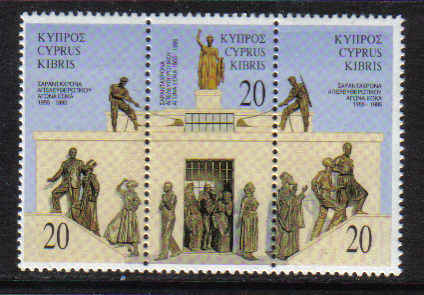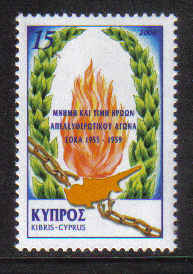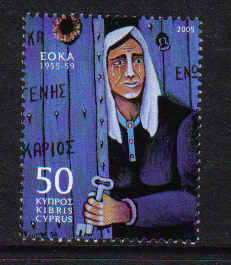Cyprus National Day (EOKA) 1st April 2013.
Posted on
Well for those who have been keeping abreast of Cyprus and her recent events will be aware it's been a bit of a rollercoaster ride since 15th March.... It's been quite a difficult time for many people with the banks being closed for almost 2 weeks.
Now you may not think that would be too much of a problem but not only were they closed but it also meant that no online transactions were being processed which caused a few issues for us.
- We couldn't easily keep track of exactly what was coming out of our account.
- We had to keep a supply of ready cash handy as some places weren't accepting debit cards.
- We needed to buy in new stock over the internet and we were aware that some transactions weren't being allowed to take place.
- We are in the process of purchasing another domain name and needed to be able to move funds around as necessary. (More about that soon.....).
Anyway, the banks are now open again, although not now until Tuesday as Cyprus has yet another public holiday on Monday 1st April (Cyprus National Day) also referred to as EOKA Day and Wednesday 3rd April sees the arrival of Cyprus' Easter Stamps.
With that forthcoming public holiday in mind, I thought I would do a bit of a spotlight on some of the EOKA stamps which have been produced over the years along with a potted history which I've taken from Wikepedia. If you want more information on it you will find a link further down to the Wiki page.
Cyprus EOKA stamps:
SG 880 - 882 1995 (40th Anniversary of the EOKA Liberation Struggle 1955-59)
Issued:31 March 1995
SG 998 2000 (45th Anniversary: In Memory and Honour of the EOKA Heroes)

Issued: 9 May 2000
SG 1095 2000 (50th Anniversary of EOKA Struggle)

Issued: 3 March 2005
The 50th Anniversary stamp is a firm favourite with me as it captures the cloak and dagger of the history of the EOKA struggle. Even though it was a relatively short event (in time), the memory lives on and on in Cyprus. It's not the best day to be waving a British flag anyway!
You can find all our available Cyprus EOKA stamps by clicking through the link.
Ideology of EOKA
EOKA was a nationalist organisation with the ultimate goal of "The liberation of Cyprus from the British yoke", presenting itself as "anti-colonialist". Although not stated in its initial declaration of existence which was printed and distributed on 1 April 1955, EOKA also had a target of achieving enosis (union of Cyprus with Greece). Despite this ideology being reflected in many of its members (and chiefly its military leader George Grivas) throughout the armed campaign, it was not of universal acceptance. The head of the political arm of EOKA, Makarios, took a more compromising approach especially during the later stages of the struggle.
Armed campaign
The military campaign officially began on April 1, 1955. On this date EOKA launched simultaneous attacks on the British controlled Cyprus Broadcasting Station in Nicosia (led by Markos Drakos), on the British Army's Wolseley barracks and on targets in Famagusta (led by Grigoris Afxentiou). Thereafter and unlike other anti colonial movements, EOKA confined its acts to sabotaging military installations, ambushing military convoys and patrols, and assassinating British soldiers and local informers. It did not attempt to control any territory, a tactic that according to Grivas would not have suited the terrain and size of Cyprus nor the imbalance of EOKA's conventional military capabilities with respect to the British Army.
More information about the Cyprus struggle can be found on the highlighted link.

Add a comment: